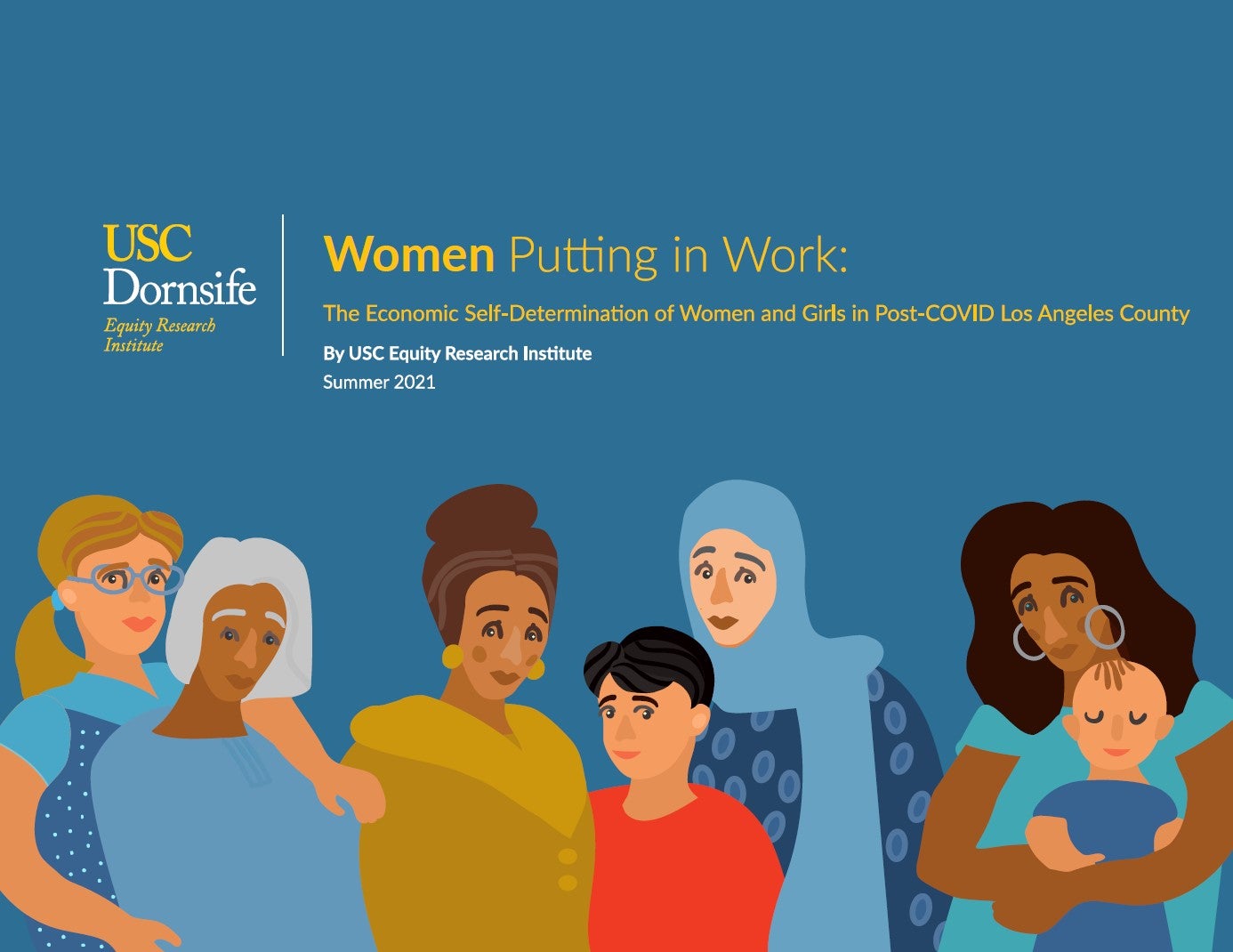
Summer 2021
By USC Equity Research Institute
Women Putting in Work creates a baseline of understanding of women in LA County during the COVID-19 pandemic. Women and girls have always been in a more precarious position, especially if they are women of color, immigrants, gender non-conforming, or hold other marginalized identities. This report both identifies the systemic inequities holding women back, in conversation with their resilience. Ultimately, it offers a set of recommendations for how to change policy so that women are not required to be resilient – so that they live in a world that sees them and supports them.
Download
Interactive Charts
The COVID-19 pandemic has ripped through the heart of the Los Angeles region. Few have been left unscathed, least of all women of color—Black, Indigenous, Asian American, Pacific Islander, Latina, mixed race, and others as well as non-cisgender women, the elderly, those with disabilities, and immigrants.
In December 2020, in the depths of the shut-down, it was reported that while there were economic gains, in the middle of a pandemic economy, net job losses were going to women. Women have carried the brunt of the economic pain.
So how will women rebuild? What can we do, countywide, to shoulder and unload the burden?
Here are a few of the recommendations from our report.
Support in-home and frontline workers who are laboring hard, often with little support.
Support caregivers in or out of the home and a robust education system that centers learners who have been left behind.
Ensure access, mobility, and voice for immigrants regardless of status.
End homelessness and secure affordable housing for all.
Continue the push towards universal health coverage and vaccine equity. In light of the current pandemic, it is critical for everyone to have access to medical support.
California has made considerable progress towards making health insurance accessible for all its residents but still has work to do to provide access for immigrants and their loved ones, especially for Latinas—U.S.-born and otherwise. Part of this is making it possible for all people to access vaccines, which may be hardest for those without cars, flexible employers, or internet access. A vaccine gap remains among Latina and African American women that may be fueled, in part, by distrust in government.



